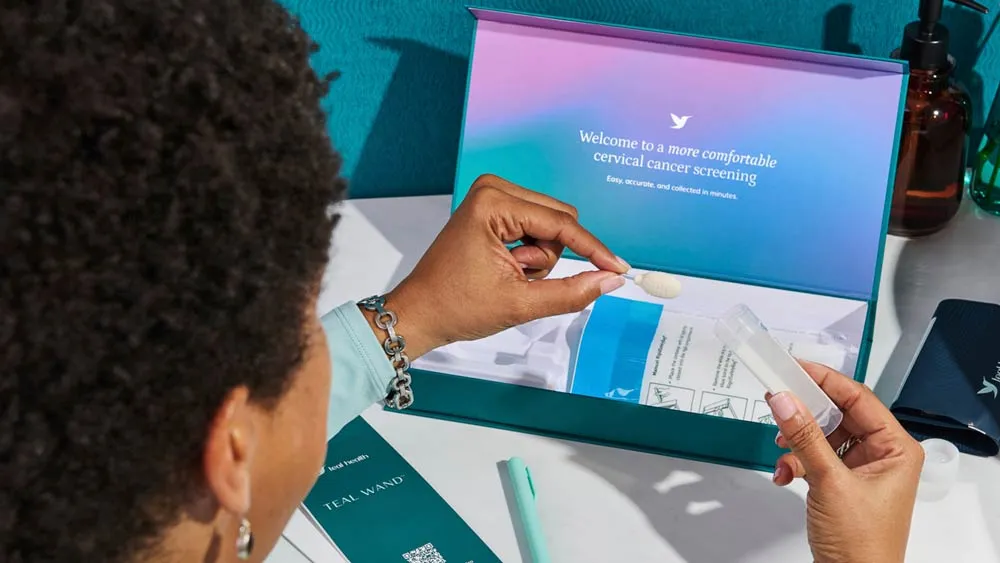January 30, 2017
The Pat Summitt Clinic Opens to Advance Alzheimer's Care and Honor Legendary Coach
READ TIME: 5 MIN.
As the number of patients afflicted by Alzheimer's disease grows to epidemic proportions in the United States, The University of Tennessee Medical Center has opened The Pat Summitt Clinic to expand its treatment capabilities, research initiatives and family support and educational programs for Alzheimer's and other dementias.
The clinic opening fulfills the wishes of the late Pat Summitt, the legendary longtime coach of the Tennessee Lady Vols basketball team who raised national awareness about Alzheimer's after being diagnosed with the disease in 2011. Summitt passed away in 2016.
"The establishment of The Pat Summitt Clinic at The University of Tennessee Medical Center allows us to dramatically increase our research, clinical trials, treatment, education, family caregiver support and other critical elements relative to the growing need for Alzheimer's related services throughout our region and beyond," said Joe Landsman, president and CEO of The University of Tennessee Medical Center.
"It's fitting that the clinic honors the unparalleled drive, determination and commitment that Coach Pat Summitt demonstrated, and taught so many of us, whether it was in an effort to win a national championship or on a mission to seek an end to a terrible disease," he added. "The latter will prove to be Pat's greatest legacy."
The number of Americans with the disease currently stands at approximately 5.5 million and is expected to nearly triple, to 16 million, by the year 2050.
Shortly after Summitt's diagnosis, she and her son, Tyler Summitt, created The Pat Summitt Foundation, with a mission to award grants to non-profit organizations dedicated to making advances in care and research aimed at finding a cure for Alzheimer's.
In January 2015, with Coach Summitt in attendance, The University of Tennessee Medical Center and The Pat Summitt Foundation announced the formation of a strategic partnership to create the clinic, with the foundation launching a five-year, $2.5 million fundraising campaign to provide partnership funding to help the medical center create the 7,500 square-foot-clinic.
"Mom fought Alzheimer's head on and when faced with the diagnosis, just as she handled every opponent she ever faced, she never hid in the shadows and she never admitted defeat," said Tyler Summitt. "Now with the opening of the clinic, in a way she's won her final game against Alzheimer's and the proof is the trophy that is The Pat Summitt Clinic. More victories for mom will come with every patient and caregiver that walks through those doors and is impacted by this clinic."
The need for the clinic and its growth capabilities in the Knoxville and Southeast region is immense. While The University of Tennessee Medical Center currently provides care for 3,000 patients and families facing Alzheimer's and other dementias, there is a waiting list for appointments.
According to Landsman, the medical center is aggressively recruiting nationally recognized physicians and other experts in the field to help the clinic double its patient volumes in the coming years to accommodate the estimated need of approximately 6,000 patients and families. Additionally, as the medical center grows its Alzheimer's research and clinical trials initiatives, there are plans to create a 2,500-square-foot research lab to complement the clinical space.
The Pat Summitt Clinic is located in the Brain & Spine Institute at The University of Tennessee Medical Center. It is led by medical director Dr. Roberto Fernandez, a nationally recognized neurologist and researcher and a leading expert on Alzheimer's disease.
Fernandez said he and his multi-disciplinary team will pursue research in efforts to find medications or treatments that can slow or possibly even reverse cognitive decline in patients. Additionally, he plans to tie basic science with real-world clinical experiences of patients, as connecting the elements, he said, could lead to findings that certain lifestyle or other changes may result in quality of life improvements for those facing the disease.
The patient focused approach is evident in numerous design elements of the clinic. A large aquarium in the lobby of the clinic, artificial lights behind shudders against the walls inside patient rooms that simulate appealing natural light, and a careful selection of materials and color schemes throughout the clinic are all meant to provide a soothing and comforting environment for patients and visitors, according to medical center representatives.
"Pat's vision for The Pat Summitt Foundation was to make a difference in this disease starting here in East Tennessee through funding of education, patient and caregiver care, and clinical research," said foundation advisory board chair, James A. Haslam, II. "The opening of The Pat Summitt Clinic at The University of Tennessee Medical Center is a realization of that vision that will have an impact on thousands of lives now and in the years to come."
Representatives from the medical center and the foundation announced the opening of the clinic Sunday at a small event for Summitt's family, Lady Vol family, and those instrumental in the creation of the clinic. Landsman acknowledged that the first few patients of The Pat Summitt Clinic were actually seen in late December, as team members felt strongly about ensuring that Summitt's legacy to advance care for Alzheimer's disease occurred in the same year as her passing.
For more information, visit�www.utmedicalcenter.org/pat-summitt-clinic.�


